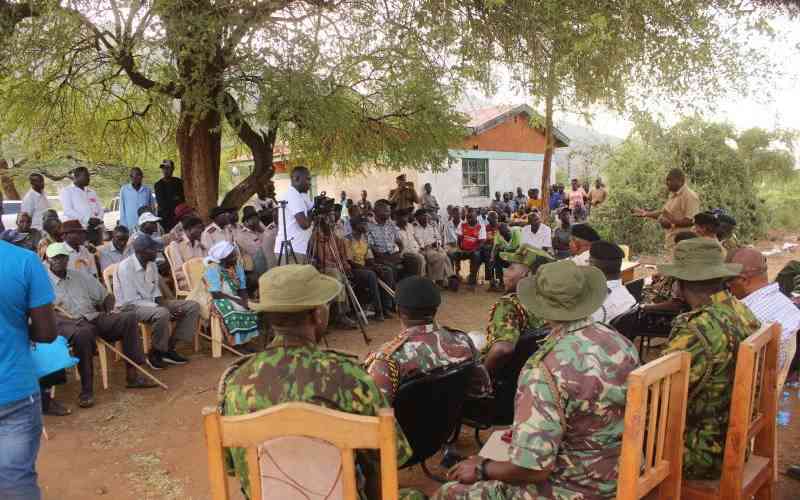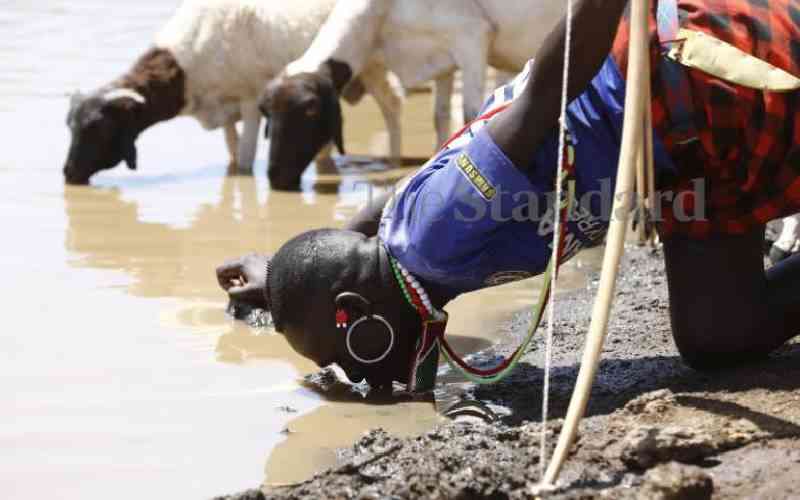In the last two years, insecurity has reached unprecedented levels. The threat of the menace came mainly from the Somalia-based Al Shabaab militants and cattle rustlers in the mostly pastoralist regions of the arid and semi-arid North.
Admittedly, the Al Shabaab group has caused untold suffering after it resorted to killing civilians who had nothing to do with their nefarious grievances, but it is acknowledged that insecurity stemming from cattle rustling has occasioned more deaths than the militants in the two years.
The losses arising from the disruption to social and economic life cannot be readily quantified.
With schools, roads, offices and businesses always closed, these areas, despite devolution of resources, cannot compete with other regions of the country that are experiencing tranquility.
Pokot, Baringo and Turkana counties have become notorious. Apart from the ever-present hunger because of the vagaries of nature, they have been turned into killing fields where even security agents sent to combat the cattle rustling menace sometimes end up as victims.
A case in point is the 2012 Suguta Valley ambush in which 48 police officers - pursuing rustlers who had made away with cattle - were waylaid and murdered in the valley.
Put together, the sporadic cases of cattle rustling and fights for the rights to pasture and scarce water resources have resulted in deaths that run into thousands. The cumulative cost as a result of the disruption caused by the clashes is staggering. Communities can only rue their young ones' missed opportunities for education.
Having taken note of the futility of conflicts in which there is no victor, only a vicious circle of death from revenge missions, residents of the most affected counties recently formed peace committees to try and iron out their differences.
One such case is a long-running border demarcation dispute between the Pokot and the Turkana. While solving this would only require cordial talks between elders from both sides and officials from the Lands ministry and the National Land Commission, some politicians have been known to take advantage of the lacuna to blow things out of proportion for personal gain.
Governors from pastoralist communities have finally acknowledged the need for a forum to address the perennial problem of castle rustling and the attendant deaths as victims defend their property.
This forum has its work cut out because in the past, blame for the constant skirmishes has fallen squarely on legislators from the volatile areas.
But then, any peace initiatives must start with them if any meaningful gain is to be realised.
Concentration of illegal firearms in the hands of the pastoralist communities of northern Kenya has been responsible for the constant fights.
While the national government has been unable to stem the influx of arms in this area, the governors would do well to sensitise the people on the benefits of peaceful co-existence, and in the process call for a voluntary surrender of arms.
The communities may have their misgivings about this, but stepping up security and assuring the residents of their own safety may make the combatants feel reassured enough to go along.
Stay informed. Subscribe to our newsletter
 The Standard Group Plc is a
multi-media organization with investments in media platforms spanning newspaper
print operations, television, radio broadcasting, digital and online services. The
Standard Group is recognized as a leading multi-media house in Kenya with a key
influence in matters of national and international interest.
The Standard Group Plc is a
multi-media organization with investments in media platforms spanning newspaper
print operations, television, radio broadcasting, digital and online services. The
Standard Group is recognized as a leading multi-media house in Kenya with a key
influence in matters of national and international interest.
 The Standard Group Plc is a
multi-media organization with investments in media platforms spanning newspaper
print operations, television, radio broadcasting, digital and online services. The
Standard Group is recognized as a leading multi-media house in Kenya with a key
influence in matters of national and international interest.
The Standard Group Plc is a
multi-media organization with investments in media platforms spanning newspaper
print operations, television, radio broadcasting, digital and online services. The
Standard Group is recognized as a leading multi-media house in Kenya with a key
influence in matters of national and international interest.








